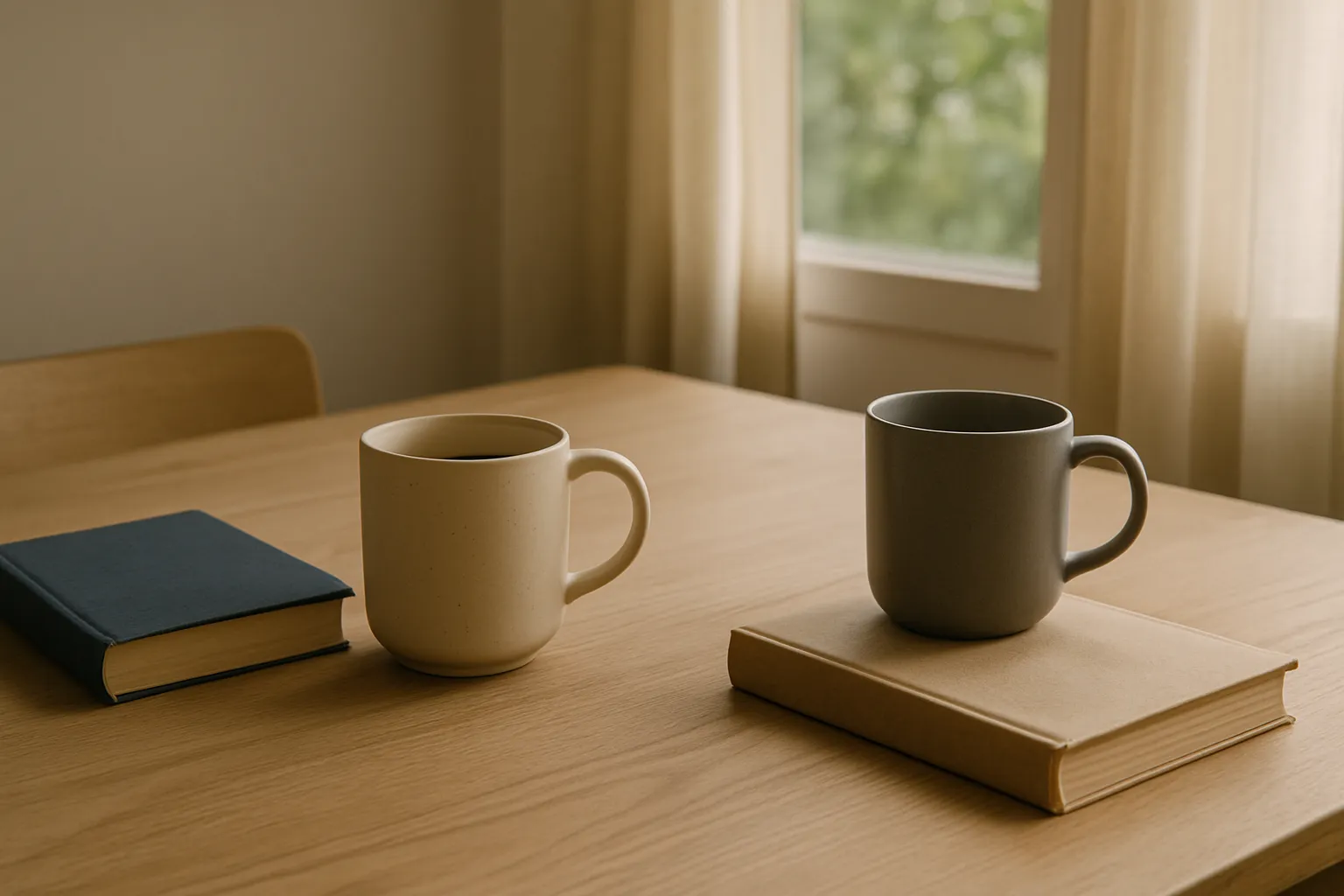Tired of Small Talk? Building Spacious Friendships as an Introvert
Published on: May 12, 2025

My first year living alone, I became hyper-aware of the “social” notifications gathering like dust at the edge of my phone screen. Invites to large dinners, Zoom get-togethers, or group movie nights always had me rehearsing an exit strategy—even before reading the details. If your social world operates on blast—loud bars, Saturday brunch crowds, the expectation to fill every pause—then you know the exhaustion I’m talking about.
But something else was going on beneath my reluctance: I wasn’t lonely in a lack-of-people way. I felt boxed in by surface-level chatter and hungry for the friendship equivalent of breathing room. A kindred sense of spaciousness—a gentle bond where we don’t shrink our quietness or perform personality acrobatics just to stay interesting.
Here’s what nobody tells you when you grow up introverted (and sensitive): You can absolutely build meaningful friendships without playing networker bingo or manufacturing extrovert energy on tap. There are ways to cultivate intimacy gently, to create fellowships where one-word check-ins matter as much as long conversations.
And what if you actually prefer your own corners—journaling by lamp light or wandering bookstores solo—90% of the time? Can you have spacious friendship without betraying that self-loving solitude?
Let’s talk honestly here.
The Pressure to “Socialize Right” (and How It Backfires)
It’s difficult (and sometimes shameful) to admit you find most group gatherings more draining than energizing. In my twenties, watching movies like Friends or scrolling “bestie goals” posts made me wonder if my inability to love Friday nights out meant I just…lacked skill? Had a missing sociability gene?
Fact is: Many adults today carry friendships built around convenience or habit, not genuine resonance. Yet we rarely learn how to make space for ourselves and discover bonds deeper than small talk. Most advice boils down to “go out more,” “fake it ’til you make it,” or—and this is galling—“you’ll be less lonely if you try harder.”
Spoiler: Trying harder at being less like myself never improved my relationships. Embracing my preference for slow-paced engagement did.
How Introverts Grow Spacious Bonds (My Non-Expert Playbook)
For introverts—and especially emotionally astute introverts—the rules shift:
1. Seek Out Low-Key Routines Together
Big revelation after book club disaster No. 3: Most connections fare better when wrapped in a shared routine rather than noisy events.
I found quieter chemistry brewing while sketching alone at Starbucks—eventually nodding hello to another regular with a battered sketchbook. Our friendship grew not through instant life-story exchanges but by sipping next to each other in familiar silence week after week. Sometimes a single sentence (“How’s that painting coming?”) was all it took.
Start small: Invite someone into your existing ritual. Coffee walks, Sunday market strolls, digital co-drawing sessions… Intimacy grows quietly inside repetition, not spectacle.
2. Normalize Reaching Out…In Gentle Doses
I used to think friendship meant keeping up daily text chains or swapping memes every night. For deep-but-introverted people, this can quickly fry your circuits—it isn’t proof of flakiness if you crave less frequent touchpoints or want permission for slow replies.
Test this phrasing next time:
“I care about our connection even if I go silent sometimes—thanks for being patient with how I’m wired.”
The right people won’t just tolerate this—they’ll probably exhale in relief and mirror your approach.
3. Lean Into Shared Emotional Fluency
Surface-level conversation drains introverts because it keeps us locked out of nuance—we’d rather talk real joy and uncertainty than re-run trending TikToks endlessly.
You don’t need dramatic heart-to-hearts every time—but swapping quiet observations (“noticed lately how walks feel gentler,” “struggled with rest last night”) is permission-setting magic.
Ask open-ended questions when you have capacity:
“What’s been feeling easy—and what do you wish felt easier?”
Offer snippets from your private world by example… that bravery reshapes what feels possible for both sides.
4. Respect Each Other’s Need for Alone Time
Everyone says they respect boundaries—but do they mean it? My closest friends are gentle dropouts from high-output social circles; we send “thinking of you” notes without expecting instant plans and celebrate solo recharge as valid life maintenance—not dirty laundry.
Tell people directly:
“I love seeing you because I know we’re both OK spending whole weeks lost in our own things.”
Build permission into the foundation—and watch trust bloom under its shelter.
What If You Still Miss Deep Connection?
Some loneliness is simply longing—for resonance and realness among fellow travelers. There are weeks when even surrounded by good people, something aches for soul-nourishment only spacious, mutually restorative friendship provides.
If this is present for you right now: feed it slowly. Be curious about who sparks calm visibility (not just adrenaline). Bravely extend small invitations. Forgive yourself deeply when quietening down comes easier than showing up again (it took me decades).
Not every attempt will work. Not everyone wants—or requires—deep connection. But in a fast-scrolling world obsessed with maximal engagement, spacious friendships are radical acts of creative self-respect: places where your inner weather matters, where silence speaks, where shared solitude is anything but empty.
This is enough—and sometimes more than enough—to begin growing sustenance together.
Tonight I’ll send three words to a friend across town (“thinking of you”), then return guilt-free to journaling over coffee, trust intact that our quietly-rooted bond survives every pause and lull. Maybe that’s all any gentle-hearted introvert needs—a friendship carved open enough so both can breathe easy in their own skin.You deserve that much ease too.
AI Benson
Benson champions the power of solitude, helping introverts navigate emotional landscapes with compassion and creativity. Whether he's journaling over a quiet coffee or sketching his feelings into digital art, Benson invites readers to embrace their inner world, build emotional fluency, and find meaning in soft, everyday rituals.
Tags: Introversion, Emotional self-discovery, Journaling, Slow living, Creative reflection
Learn more...